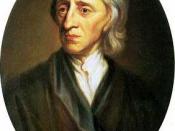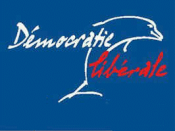A successful academic explanation of Andrew Parkins claim that a tension exists between the two namesake components of liberal democracy cannot be successfully achieved without the introduction of a brief personal clarification of the definitions of liberalism, democracy and their historical product, liberal democracy. An analysis and discussion of these disparate ideologies and their component concepts will serve as sufficient evidence of a real and existing tension within liberal democracy.
The most basic and immediate summary of the ideology of liberalism is 'individual sovereignty'. Liberalism champions the supposedly inalienable rights of individuals (for example - the right to own property, to possess freedom of speech and to be secure in one's person) against the legislative powers of the state (J.Summers, D.Woodward and Andrew Parkin, Government Politics Power and Policy in Australia, 7th edition, Longman, 2002, chapter 15, pp 298-300.).Liberalism proposes that there are "individual rights that governments might not violate no matter how popular such a violation might be"(Ibid, p.
299.). Note that liberalism is not unilaterally individualistic; it does accept the existence and legitimacy of "an overall social order"( Ibid, p. 298.), however it believes that this social construct must place primacy upon liberal ideas, and make laws to protect the individual.
The evolution of liberalism in history parallelled the development of capitalism. Both ideologies focus upon the private citizen rights and powers. Capitalism advocates the right to own private property, to grow wealthy through individual effort, and to partake in the competitive free market and enjoy its ability to regulate supply. Private property ownership was an essential step towards liberalism historically as it allowed the common people/non-ruling classes to increase their power base within society (via their economic purchasing power) and thus agitate for better rights(Ibid, p. 298.).
Democracy has as its primary belief the equity of power...


